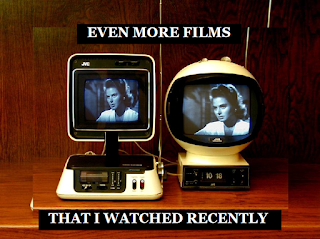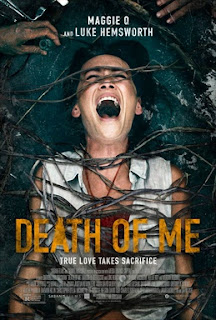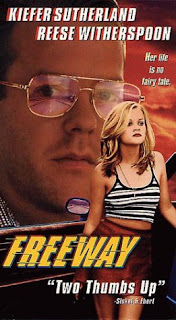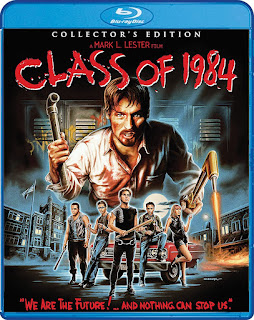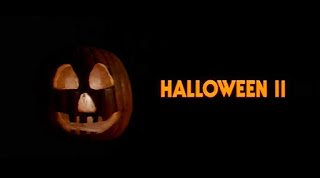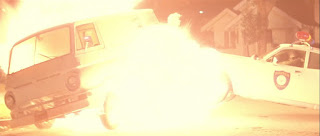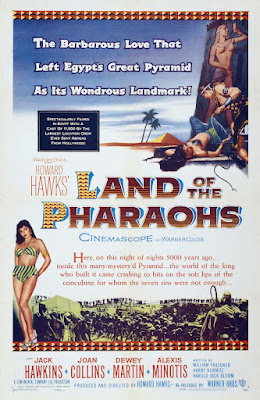Well, ten-ish. Obviously there are hundreds (and hundreds) of WW2 books out there. Mention one and people will mention ten more. As it should be. That's how I ended up with the collection I have, from checking out things I read in interviews or bibliographies. Here's a mix of fiction and nonfiction that I recommend on the topic, in chronological order of publication.
All non-book-cover-pics from The Atlas of World War Two, Unexplained Mysteries of World War Two, Their War, 1943: The Turning of the Tide, US Naval Institute Calendar 1993, family archives, and Victory Through Air Power. Here we go.
 |
| (1947) |
I highly recommend James Michener both as an author of engaging reading and as a one-man crash course in any topic he covered. Despite being doggedly of the same political party, his is a different approach to the currently-ascendant Zinn/1619-Project approach re: the ideals and lived reality of these United States. More's the pity for us, but he'll come back around, I'm sure.
For the moment, is this book better known by musical theater patrons than military history/ war fiction readers? It might be the case. But that just means it can be rediscovered en masses again someday. When that happens, people will find a rather shocking evocation of the war in the South Pacific: the logistics, the personalities, the racism(s), the geography, the jungle, the hardships, the natives, the foreigners *, the hardware, the weather, everything. The non-combat anecdotes, such as island-hopping for booze or the coda with the gravediggers of Guadalcanal, balance the combat sections perfectly. **
* I refer here to the Americans. The depictions of the indigenous are colorful but not without the author's biases, something he later wrote on at some length (and with his usual insight).
** If you ever read it, you might want to pick up Michener's Voice of Asia, too, as a sort of immediate-sequel. Not as successful an integration of fiction and nonfiction, but a fascinating look at the war's immediate aftermath throughout Polynesia.
Even more interesting than this, arguably, are the chapters in Michener's autobiography of his WW2 service. The first chapter concerning the mutiny on the boat and the forged passes should be a movie all on its own. Both books, actually, contain some info I've never seen anywhere else (such as the things NY landlords did during the war, or the added threat of rape from some American servicemen that nurses in the Pacific endured.
 |
| (1948) |
Although Italy was allied with Germany in World War II, the Italian viewpoint on the war often differed sharply from that of the Germans. Malaparte was an eyewitness to the campaigns in Finland, the Ukraine, and Leningrad, and has left behind a moving account of many small incidents in the day-to-day conduct of the war.
D-Day sucks up a lot of air in the room when it comes to most WW2 talk in the West. And the Holocaust. Understandably on both counts, sure, but even beyond D-Day there's often only a handful of events, battles, or personalities that comprise the totality of most people's conception of the conflict. Books like The Volga Rises in Europe broadened my own mind of idea of how (and where) the war was conducted.
I used to have a huge WW2 wall map that had along the bottom all the flags of the countries that fought in it, and visitors were always surprised to see the blue-and-white swastika for Finland down among the enemy combatants. Yep: they were Hitler's allies, shoring up the northern border of Fortress Europa. They were also not interested in Hitler's aims or Naziism at all; just a means to an end, i.e. reclaiming the territory the Soviets stole from them . (Like 100% of the territories the Soviets invaded in the years prior, during, and after WW2, no one ever made them give it back.) A bit squirrely, all of this, but WW2 forced some strange bedfellows all around.
Everything in this book is interesting reading, from the political dimensions/ between-the-lines stuff, to the logistics of the invasion of the Ukraine. Babi Yar is not mentioned or alluded to, but knowing it is happening gives these sections of people cheerfully laying telegraph and other wire and camp followers and dust and countryside a chilling aspect to be sure. Mazaparte was expelled from the Ukraine before too long for writing the articles included here, regardless. An unfortunate apologist for communism until his death in 1957, he had a varied and interesting life and wrote a few more books that I'd like to read someday.
 |
| (1952) |
Overshadowed by the (excellent) film, here's a gem, not just for the pleasure of well-crafted sentences, dramatic action, or wonderful characterization but for the levels of irony and thematic complexity. The blurb on the back of my copy reads: "Hitherto there has been just one unforgettable picture of a British colonel by a French novelist - Colonel Bramble. He is now joined by Pierre Boulle's Colonel Nicholson." I have not read the Maurois * short story, so can't comment there, but definitely will attest to the iconic status of Boulle's creation. (Also: "A fine ironic novel that is yet another French tribute to British eccentricity.")
* Although I just won an auction of André Maurois books so that will change soon. Huzzah!
"Clipton cursed the Colonel but was forced to yield, (sending) back to work a crowd of limping crimples, walking wounded, and malaria cases still shaking with fever but capable of dragging themselves along. They did not complain. The Colonel had the sort of faith which moves mountains, builds pyramids, cathedrals or even bridges, and makes dying men go to work with a smile on their lips. (...) With this fresh impetus the bridge was soon finished. All that remained now was what the Colonel called the trimmings, which would give the construction that "finished" look in which the practiced eye can at once recognize, in no matter what part of the world, the craftmanship of the European and the Anglo-Saxon sense of perfection."
Boulle's specific experiences before and during the war color most of the detail of Kwai. I'm making my way through all of Boulle's stuff. A great companion read to this is his My Own River Kwai, about his experiences (and capture) during WW2. I wanted to include it on this list because it gives such a fun and detailed account of a theater of the war (Indochina under the joint Vichy French/Japanese occupation) often neglected. But I thought including two Boulles would be too much, and Bridge deserves the honor more.
~
 |
| (1955) |
The story of Convoy FR77 to Murmansk – a voyage that pushes men to the limits of human endurance, crippled by enemy attack and the bitter cold of the Arctic.
I've got stacks of paperbacks that are falling apart that I nevertheless cannot throw out. Mostly I use them as side-stacked shelf ballast; they break up my eyelines agreeably.
A lot of these are Alistair MacLeans. Many are in rough shape. I liked this one (and South by Java Head, which I also could've included here but see above remarks for My Own River Kwai) enough to buy a better copy.
"Heavy gray clouds, formless and menacing, blotted out the sky from horizon to horizon. They were snow clouds, and please God, the snow would soon fall: that could save them now, that and that alone.
Everything about the Murmansk run - from rendezvous in the middle of the North Atlantic/ lower Arctic to sailing it to loading it to unloading it to flying out and back to bomb it - sounds like it was hell on Earth. The misery of this one is etched forever on my brain. I can remember whole scenes in vivid detail, but one in particular, of the Captain visiting the doomed men below-decks, zombie-eyed, half-submerged in ice water that they must keep from freezing by moving in slow, agonized circles or vital equipment will be destroyed, doomed to die in their frozen tomb, stands out.
Someone needs to make it into a movie, but it'd be too disappointing to see an inferior realization. I can picture the movie poster, though, of a frigate with its landing deck snarled up like the peeled cover of a sardine can with Arctic spray and gloom and the Luftwaffe approaching.
 |
| (1960) |
Here’s the story of the USS Wahoo, the most successful submarine in the WW2 Pacific Fleet, told in the rhythm and vernacular of the submarine service of the era. Brutal work; there’s always brutality to spare in WW2 reading, but there's something extra brutal about the sub service in any war. The Battle of the Atlantic gets a lot of the attention, but the most successful American patrols were in the Pacific. Success measured, here, in tonnage sank. The Wahoo sent twenty one ships, sixty thousand tons and untold lives to the bottom of the ocean. It was due to the efforts of ships like the Wahoo (captained by the amazingly named Mush Morton) and the USS Tang (captained by her ontetime first mate of the Wahoo Dick O’Kane) that Japan was largely unable to resupply its armies.
Sterling was the sub’s yeoman, so he was privy to most of the intel going to and from the Wahoo, and he had contact with everyone on the ship, regardless of rank. In one of those random strokes of luck that haunt survivors for the rest of their lives, he transferred off the Wahoo as it was refueling at Midway. The officers and crew threw him a going away party and all agreed to meet up in the year 2000. The sub never returned (it was later found by the Russians, still largely intact from where it was bombed). He died in 2002.
Most of the pages of mine have come unglued in the middle, so rereading it is a delicate affair. Nevertheless I’ve done so four or five times over the years. I love submarine stories, and if this one was not on here I’d include Run Silent, Run Deep or Sunk (the Japanese ss), both worthy inclusions. There’s something special about Sterling’s account, though, so here it is.
The Pacific theater is fertile ground if you'll pardon the mixed metaphor for ghost lore. The Last Battleship by Joseph J. Christiano is a great one of those. There are hundreds, like I say. I didn't want to include any WW2-adjacent works, so to speak, but while we're here.
~
 |
| (1970) |
I bought this at the late great Bonnett’s Bookstore in Dayton back in the 90s but never read it until five or six years ago. Amazing stuff. A Pacific Theater counterpoint to Shirer’s The Rise and Fall of the Third Reich, told mostly from the Japanese POV. One of these days I'll get the whole collection of the History of Naval Operations in World War II and read the whole damn thing start to finish. And if there was a comparable volume for the Imperial Navy, I'd read that too.
The only glaring deficiency is barely a whisper of the occupation of Korea or many of the other activities in the occupied zone. Ah well. (Maybe the Kempeitai got to Toland.) The only true villain of the entire saga, it seemed to me, was one particular guy, Colonel Tsuji. Even he had a fair point about some things - Asia was undeniably under the racist dominion of the West for centuries, after all. He's a bit like the General Sherman of the Japanese side, perhaps. Not that that excuses a single atrocity he (or anyone, on either side) committed. I was flipping through the endnotes in completion-victory and was intrigued by this:
"To avoid standing trial as a war criminal, Colonel Tsuji went underground in Thailand immediately after the surrender, disguised as a Buddhist priest. He made his way secretly to Japan and in 1952 was elected to the Diet from the first district of Ishikawa Province. He was re-elected in 1956 but resigned 3 years later to run for the House of Councilors, to which he was elected. As he was taking his seat, General Kawaguchi (an old nemesis from Guadalcanal) shouted at him and accused him of lying, as well as charging him with atrocities in Singapore and the Philippines. The two eventually had a face-to-face debate before a capacity audience at Town Hall in Kanazawa. Tsuji denied the accusations but admitted he had erred in calling Kamaguchi a coward.
"In 1961 the Japanese government sent Tsuji to Southeast Asia, where he vanished in Laos. Several months later it was reported he had entered Red China. He was never found, and his mysterious disappearance has resulted in numerous sensational rumors. Mrs. Chitose Tsuji believes her husband is dead, but Shigeru Asaeda - who accompanied him on numerous diplomatic postwar trips - believes he is in a Red Chinese prison."
There were also rumors he advised the North Vietnamese. Sounds like a movie to me!
 |
| (1970) |
I actually haven’t read this yet. It and Canaris look very imposing on the shelf. Speaking of, somewhere along the way publishers stopped putting so many swastikas on book spines which as a WW2 collector, I appreciate. When I belonged to the Military Book Club there was a three to four months stretch where every other monthly selection was The Illustrated History of the Gestapo or the Tottenkopf. I got them all of course, but it made for some uncomfortable decor. I remember throwing a party once and turning that whole stretch of shelf terrain around lest people got the wrong idea.
This one, a memoir by "Hitler's Architect", was controversial upon release. Was he whitewashing his story? Was a Nazi Inner Party member profiting on his activities during the war? You'll have to answer these questions yourself. For my part, there are only a handful of Nazi Inner Party memoirs even available; that makes them an amazing resource. Of course no one should take any memoir as anything other than the person writing it putting a spin on their life and times. They can't be objective observers; all the more fascinating to read.
Along those lines, I remember getting a rash of social media crap back in the day when I announced I was reading The Service by Reinhard Gehlen. I didn’t include it here not because I don't recommend it - I do - only because it’s primarily a book about the post-WW2 years. Gehlen was one of the Nazis spirited out of Germany before the Soviets could grab him. His story, like Speer's or Werner Von Braun's or our or any country's, is not as morally cut-and-dried as perhaps we like. Like I say, all the more reason to read it.
I just realized I should also have included this book. How did I forget that? I'll just mention it for now - amazing read. There's a movie on Heydrich in Prague directed by Fritz Lang, as well - watch it.
 |
| (1973) |
William Craig’s unforgettable book on the nightmare of Stalingrad. The story writes itself: the city Hitler never meant to capture and that Stalin never meant to defend, the premature minting of coins commemorating German victory, the encirclement and destruction of the Sixth Army, the brutal incompetence of Russian military command vs. the determination of the grunts, the last flight out, the terror of the Russian prison camps in frozen Siberia, the tide finally turning in favor of the Allies.
The author relays events chronologically with generous recollections from the few survivors and official accounts – Russian, German, and Italian. I hadn't read this when the movie came out, but going to see that in the theater was interesting. Everyone in the audience was a single man - that is, they were there by themselves - and when Bob Hoskins appears on screen as Krushchev, someone in the front row shouted out a bunch of Russian at the screen and then walked out.
The film has its fans, but I thought it was crap. How do you screw up such an amazing story? I haven't seen the latest version, but the Stalingrad movie from the 80s or 90s, whenever it was, is great. Neither beats reading this book, though. While we're here, I'll recommend the Why We Fight: Battle for Russia program, as well. All of those Why We Fights are amazing. The Russian front took over my imagination in the winter of 2000; I remember watching that thing on the little TV I had back then, in the dark in my little studio apartment in North Providence (with a British and Soviet flag in the window to boot), during some raging snowstorm, hypnotized.
~
 |
| (1991) |
Here's a harrowing read. I mentioned the Murmansk run as hell on Earth. Probably only WW2-era Poland rivaled it for such a distinction. Kosinsky's The Painted Bird - covering similar terrain - had a big effect on me when I read it, but Kosinsky is an unreliable narrator, in more ways than one. Not so with this memoir.
A reader on Goodreads perhaps said it best:
"This incredibly well-written novel is not the typical - if you'll forgive calling a Holocaust survival story 'typical' - story of a survivor of WWII. The perspective is that of a Jewish boy in Poland who never sees a concentration camp, but lives a different kind of trauma in hiding his Jewish identity throughout the war. The novel addresses many complexities, but for me ultimately raised questions of "honorable" choice: is there more honor in surviving a war, and in this case escaping the worst atrocity, one way versus another? How does the unsentimental practicality inherent in a survivor's generation impact a child? What does it mean to be a survivor on the fringe of a community already on the periphery? Highly recommended - also a quick read."
~
 |
| (1991) |
This history of obscure Waffen-SS units has all the elements of a war novel: ambushes, glider assaults, rescues, courage, betrayal. Included are Turkic, Hungarian, Serbian, Czech and Russian formations, as well as never-before-seen photos, diagrams, maps and first-hand accounts from diaries and survivors.
Here's another Military Book Club selection from yesteryear. It and another one I picked up at the same time (Gotterdammerung by Russ Schneider) will tell you more about the eastern front of WW2 (from the inside) than many other books.
I've seen some criticism of this one as being almost pro-Waffen-SS. I did not find it to be that way, only that it did not go out of its way to be anti-Waffen-SS. As loathsome as the Nazis obviously and inarguably were, it's silly to think of every soldier who fought on the Axis side - especially those from captured territories - as the same degree of evil. Working for an evil side, sure, again no arguments. It's just: do we ignore every last soldier's experiences, then, because evil? Seems silly to me. Just as it's silly to think of everyone who fought on the Allied side - especially those from the stockades who were handed a rifle - as morally superior.
Some of us just want to read about what happened and what it was like without an author's heavy hand in any direction. 'Nuff said. I enjoy reading about things left out of most narratives of WW2, such as basically everything in this volume.
 |
| (1992) |
This could pretty much be insert-Ambrose-here. You can't really go wrong with anything by him you pick up. You don't need me to tell you anything about this one, I assume, but if you've only ever seen the (excellent) mini-series, you should give the book a read. Especially the endnotes.
If I have a criticism of the author, it's that he sometimes goes a bit overboard on the heroism and courage descriptors. I certainly prefer it to approaches that attempt to minimize such things, and I've no beef with it in principle. Just there are a few times where he describes otherwise neutral actions with hyperbole. Not quite at Battle Cry by Leon Uris levels, but tilting in such a direction, here and there.
~
 |
| (2008) |
With original and controversial insights brought about by meticulous research, Human Smoke re-evaluates the political turning points that led up to war and in so doing challenges some of the treasured myths we hold about how war came about and how atrocities like the Holocaust were able to happen.
So says a blurb from the official release. I think this book is amazing, but it seems to have garnered a bit of a reputation as historical revisionism. And I don't think fairly.
What it does is collect quotes from all sides (and some sides you wouldn't think to include in such a book as this, such as Gandhi's) to paint a broader picture of the years leading up to the war and the aims / tactics of the various powers. In so doing it complicates a black-and-white view of FDR, Churchill, Hitler, et al. But that's all it does: complicate hagiography, not revise or alter or reframe the historical record. I see that happening often enough out there, and it worries me deeply. I don't think it's happening in Human Smoke.
One thing missing from works such as this that should be kept in mind is that while it gives an interesting picture drawn from many angles, it's not a complete panorama. (It says so right in the beginning!) Another book, for example, A Man Called Intrepid , describes actions running concurrently as any described here. More than one thing can be true at any one time and always often are.
~
 |
| (2020) |
This came out last year, but I didn't read it until 2021. The press around its release felt like part of an electioneering strategy last year, which was gross. I'm glad I waited, as it was probably much more revealing reading it in the first hundred days of the Biden administration rather than the last hundred days of Trump's. That won't be the case for everyone, though.
Whatever the case, the story of how a deeply divided nation was transformed into a one-party dictatorship, to the sound of wild cheers and parades, tolerating things it would never have tolerated - indeed was founded not to tolerate - is urgent in any era, any country. When the Nazis were elected, they quickly set about (1) dismantling, absorbing, or ghettoizing any threats to their political hegemony (the Enabling Act), (2) establishing Reich commissars over local states and governments, (3) abolished the trade union (by merging their reason for being with itself, i.e. fascism, corporate-government), (4) legally disenfranchising German Jews as prelude to the horrors to come, (5) defunding police forces (and replacing them with its own), (6) inserting ideological watchdogs in every formally independent strata of society.
If you know where you want to get to, have the will to pursue it, and hit the ground running, there's an awful lot you can accomplish before anyone even gets their bearings. Be careful who you sweep into power in a pique! I'm not comparing anyone to Hitler. Sincerely - these are lessons evergeeen.
~
Sometime in the future, America and its allies will again face an external threat of equal or greater menace than the Axis. Will we, of whatever political stripe, pull together to face it? May we forever use the example of World War Two to urge us together to face it.



























